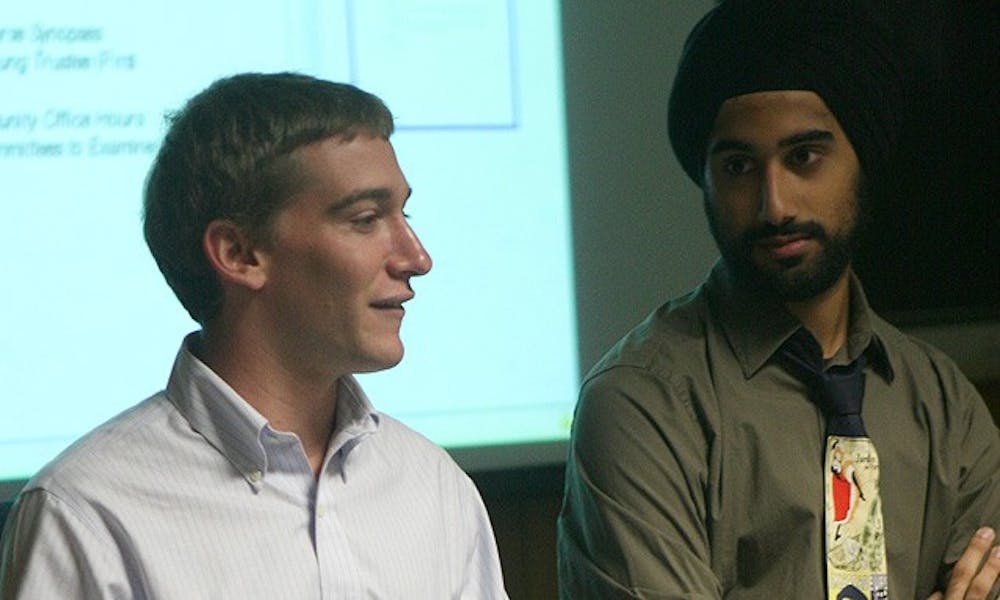In an attempt to redefine the University’s academic environment, Duke Student Government established two student-led committees to examine Duke’s intellectual climate and curriculum.
Junior Kaveh Danesh, vice president for academic affairs, proposed the committees because the academic curriculum and climate are the biggest problems that administrators and students have cited at Duke.
“They are untouchable and there [are] huge systemic issues Duke has always had,” Danesh said.
He added that the intellectual climate has received significant criticism in the past.
“A lot of students ask if there’s a place for them... to talk about ideas while everyone goes to Tailgate,” Danesh said. “We need to assess if there is a deficit perceived, and if this issue is unique to Duke.”
Danesh added that there has been similar criticism of Curriculum 2000, the current academic curriculum. He noted, though, that administrators will not craft a new curriculum based on student proposals only but a student committee would “get the ball rolling.”
The student-led committees, Danesh said, would help facilitate student-faculty conversations about Duke’s intellectual environment.
“Talking to faculty would help us ground our ideas,” Danesh said. “Administrators would not just be able to say, ‘We won’t look at the results because it would be a slap in the face to both faculty and students.”
Danesh also noted that members would research the current state of Duke’s curriculum, the intellectual climate and student-faculty opinions to devise possible solutions.
“Year after year, academic affairs tries to address issues like these and ends up creating programs like [the School of Law’s Duke in D.C. program],” Danesh said. “These issues breach the top [of the problems] and nothing significant comes out of them.”
After some debate about the size, DSG members decided each committee will be composed of 10 students. Freshman Daniel Pellegrino, an academic affairs senator, said ten students would be an optimal number because more research could be conducted.
Senators also asked about possible overlap between the two student-led committees and the DSG committee for academic affairs. Danesh said though there will be many academic affairs senators running for positions on the new committees, there will be a clear distinction between the two.
The committee was both approved and assembled at the meeting.
Get The Chronicle straight to your inbox
Signup for our weekly newsletter. Cancel at any time.

